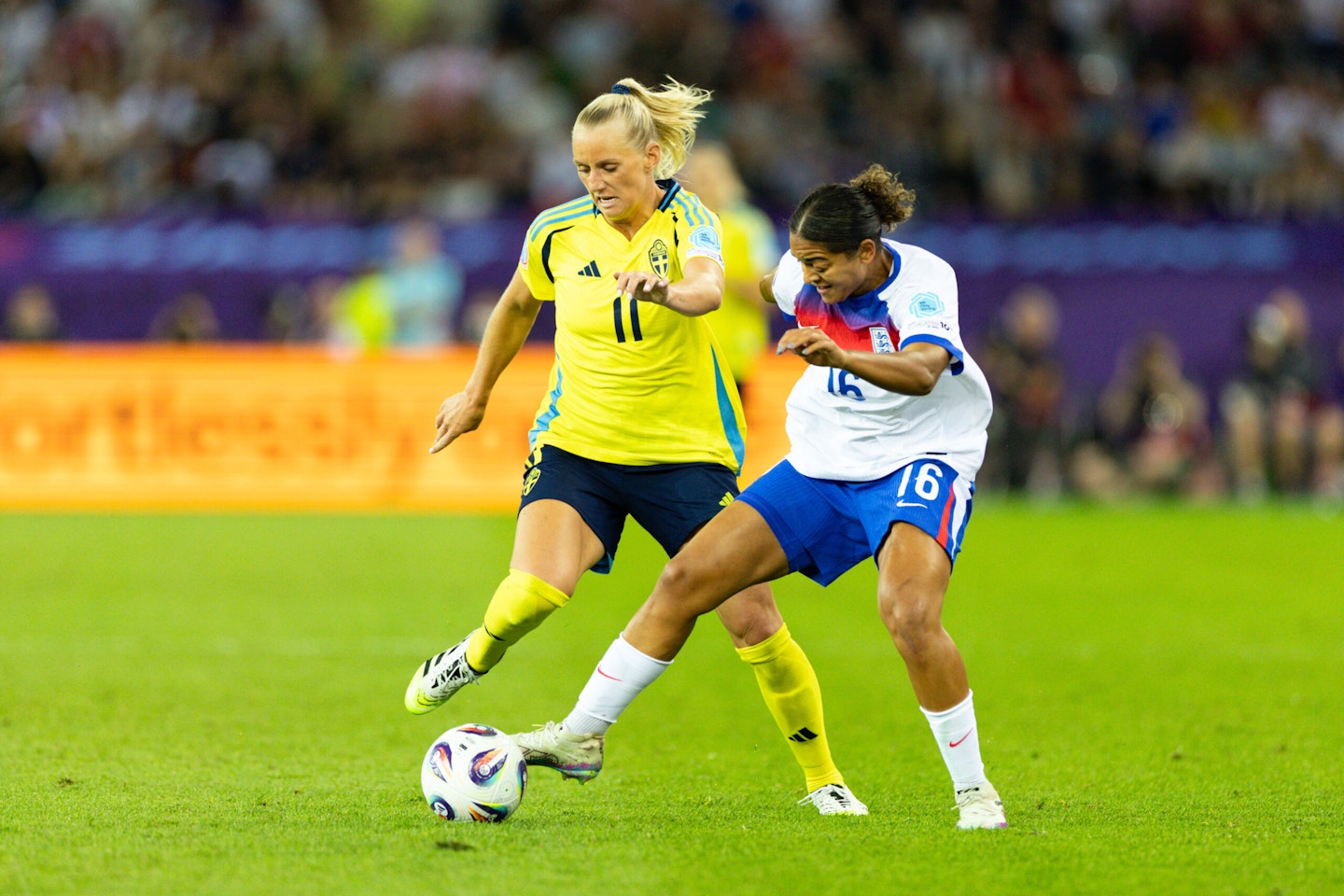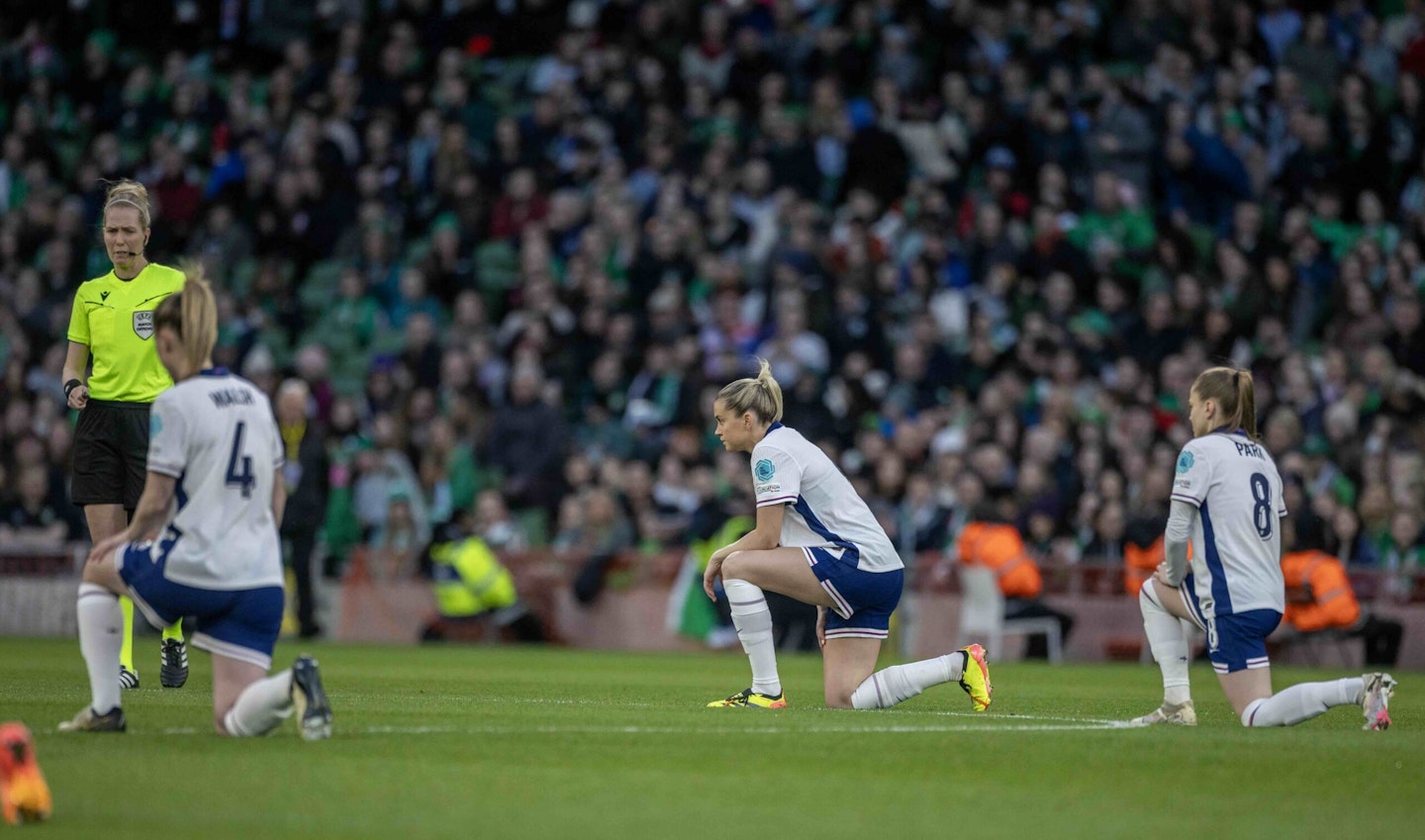Jess Carter has opened up about experiencing a rise in racial abuse as part of the Euro 2025 tournament. The defender, who has played for England since 2017, said she is taking a step back from social media due to the abuse.
‘From the start of the tournament I have experienced a lot of racial abuse,’ Carter said in a statement. ‘While I feel every fan is entitled to their opinion on performance and result, I don't agree, or think, it's OK to target someone's appearance or race.
As a result of this I will be taking a step back from social media and leaving it to a team to deal with. As ever, I am grateful for all of the support from the genuine fans, but I am taking this measure to protect myself in a big to keep my focus on helping the team anyway I can.’

Carter has been fielding criticism of her performances against France and Sweden, but the football debate clearly turned abusive in recent weeks and now, the Lionesses as a team are refusing to take the knee – an anti-racism gesture performed at the start of each game – because they don’t feel it goes far enough to tackle racism in football.
‘Representing our country is the greatest honour,’ the team said in a statement. ‘It is not right that while we are doing that, some of us are treated differently simply because of the colour of our skin. Until now, we have chosen to take the knee before matches. It is clear we and football need to find another way to tackle racism. We have agreed as a squad to remain standing before kick‑off on Tuesday.’

The kneeling gesture has been a talking point for years now, with players in the Premier League stopping in August 2022 in order to select ‘significant moment’s to kneel as a way to ‘amplify’ the anti-racism message. Some argue that by taking the knee at every game, it’s no longer as powerful a tool of protest – as it was when first done by NFL player Colin Kaepernick in 2016, during the national anthem, protesting racial injustice and police brutality in America.
‘There’s maybe a feeling that it has lost its power,’ England player Alex Greenwood said of the Lionesses shared decision to stop taking the knee.
The bigger the sport has got, the more abuse has come with it.
'The sentiment of taking a knee and [now] standing, as small as it might seem, I think the noise will reach around the world,’ England’s Lucy Bronze added. ‘The bigger the sport has got; it seems that more abuse has come as well. With women’s football, there seems to be a real target online.’
Figures show that there’s been a 44% increase in reports of sexism and misogyny against female football players, according to Kick It Out, with Women In Football reporting that 89% of women in the industry at large have experienced discrimination.
Carter, from Warwick, has dual citizenship for the US and Britain, her father African American and her mother British. On speaking out about the racial abuse she’s endured, Carter says she hopes ‘people writing this abuse [will] think twice so that others won’t have to deal with it.’
‘We have made some historic changes with this Lionesses squad that I am so proud to be a part of,’ she added. ‘My hope is that by speaking out about this it will make another positive change for all.’
Georgia Aspinall is an award-winning journalist and acting assistant editor at Grazia UK, previously senior editor. As well as co-ordinating news and features for both digital and print, she is responsible for Grazia's campaigning efforts. Georgia has a vast knowledge of digital journalism and SEO best practice, covering women's interest stories across politics, health, dating, travel and pop culture.
